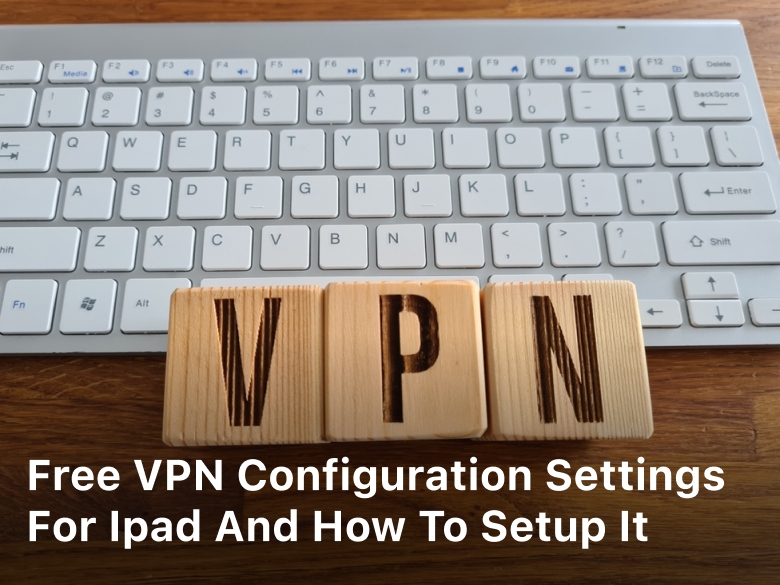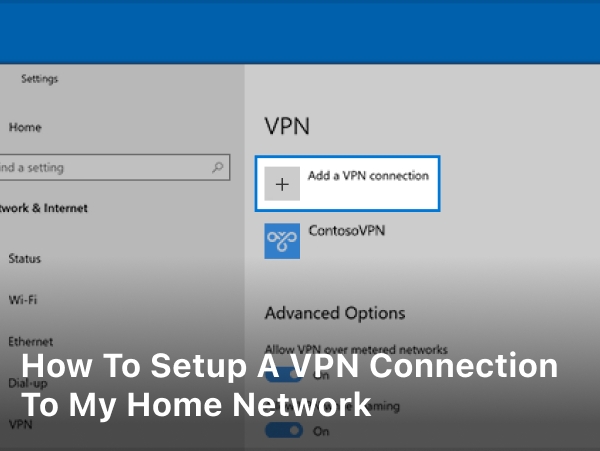Welcome to our comprehensive guide on SSL VPNs! In this article, we will explain what an SSL VPN is and how it provides secure web access. If you have ever wondered how to protect your online activities and ensure a safe browsing experience, you’re in the right place. Let’s dive into the world of SSL VPNs and explore their functions, features, and the importance they hold in today’s cybersecurity landscape.
So, what exactly is an SSL VPN? Simply put, it stands for Secure Socket Layer Virtual Private Network. An SSL VPN is a technology that enables secure remote access to internal networks and web resources through encrypted channels. It allows users to connect to a private network using a public internet connection, keeping their data safe from prying eyes.
Throughout this article, we will break down the concept of SSL VPNs and highlight their benefits. We will also delve into the various security features and advantages they offer, as well as compare SSL VPNs to other VPN technologies like IPsec. By the end, you will have a clear understanding of what an SSL VPN is and why it is a vital tool for protecting your online privacy and enhancing your web browsing experience.
Understanding SSL VPN Technology

When it comes to secure web access, SSL VPN technology stands out for its numerous benefits and advantages over other VPN technologies like IPsec. In this section, we will explore why SSL VPN is a popular choice and how it surpasses IPsec in terms of security, ease of use, and flexibility.
The Benefits of SSL VPN
One of the key advantages of using an SSL VPN is its robust security features. SSL VPN utilizes secure socket layer (SSL) encryption protocols, ensuring that all data transmitted between the user and the VPN server remains encrypted and protected from unauthorized access. This encryption ensures that sensitive information, such as login credentials and personal data, is safeguarded against potential threats.
Another significant benefit of SSL VPN is its ease of use. Unlike IPsec, which often requires the installation of additional software and the configuration of complex settings, SSL VPN typically operates through a standard web browser. This user-friendly approach eliminates the need for extensive technical knowledge or specialized software, resulting in a seamless and accessible user experience.
Comparison with IPsec
When comparing SSL VPN with IPsec, it becomes evident that SSL VPN offers greater flexibility in terms of device compatibility. SSL VPN is compatible with a wide range of devices, including laptops, smartphones, and tablets, making it convenient for users to connect securely from any location. On the other hand, IPsec may present compatibility challenges, particularly when connecting from different networks or using non-standard devices.
Furthermore, SSL VPN provides enhanced connectivity capabilities, allowing users to access secure web-based applications and services without the need for additional software or configurations. IPsec, on the other hand, may require specific VPN client software in order to establish a secure connection, which may result in limitations and potential compatibility issues.
In summary, SSL VPN offers a host of benefits including robust security features, ease of use, and device flexibility. When compared to IPsec, SSL VPN emerges as the preferred choice for individuals and organizations seeking secure web access.
Enhancing Cybersecurity with SSL VPN
In today’s digital landscape, cybersecurity is of utmost importance. With the increasing number of cyber threats and data breaches, protecting your online activities has become crucial. This is where SSL VPN (Secure Sockets Layer Virtual Private Network) comes into play, providing an essential layer of security for your web access.
Security Features of SSL VPN
- Encryption: SSL VPN utilizes encryption protocols to secure data transmission between your device and the remote network. This ensures that your sensitive information remains confidential and protected from interception.
- Authentication: SSL VPN employs various authentication methods, such as digital certificates, two-factor authentication, and username/password combinations. These authentication mechanisms ensure that only authorized individuals can access the network.
- Access Control: SSL VPN offers granular access control, allowing administrators to define specific policies and permissions for different user groups. This ensures that users only have access to the resources they need, reducing the risk of unauthorized access.
Advantages of SSL VPN
- Flexibility: Unlike traditional VPNs, SSL VPN does not require the installation of client software. This makes it compatible with a wide range of devices and operating systems, providing flexibility for remote access.
- User-Friendly Interface: SSL VPN typically comes with an intuitive and user-friendly interface, making it easy for individuals to connect to the network securely. This reduces the need for technical expertise and allows users to focus on their work.
- Scalability: SSL VPN can accommodate a large number of simultaneous connections, making it suitable for businesses of all sizes. Whether you have a small team or a global workforce, SSL VPN can scale to meet your needs.
By understanding the security features and advantages of SSL VPN, you can see how it enhances cybersecurity measures. With encryption, authentication, and access control, SSL VPN provides a secure and reliable solution for protecting your online activities. Whether you are accessing sensitive information or connecting remotely to your corporate network, SSL VPN offers peace of mind and ensures that your data remains confidential and protected.
Simplifying Remote Access with SSL VPN
When it comes to remote access, SSL VPN technology offers practical benefits that simplify the process and enhance user experience. By delving into the underlying technology behind SSL VPN, we can understand how it streamlines remote access and eliminates the need for complex configurations.
SSL VPN provides user-friendly interfaces that allow seamless remote access without compromising security. With its intuitive design, users can easily connect to their corporate network or access resources from anywhere in the world.
One of the key features of SSL VPN is its ability to establish secure connections over standard web browsers, eliminating the need for additional software installations. This convenience allows users to connect to their networks effortlessly, regardless of the device they are using.
Moreover, SSL VPN offers extensive features that enhance remote access capabilities. These features include:
- Endpoint security checks to ensure only authorized devices can access the network
- Granular access controls that enable administrators to define user permissions and restrict access to specific resources
- Seamless integration with existing authentication systems, such as Active Directory, ensuring a smooth user experience
- Secure data transmission through encryption, protecting sensitive information from unauthorized access
By leveraging these SSL VPN features, organizations can simplify remote access for their employees, contractors, or partners, making it more efficient and secure.
Conclusion
In conclusion, an SSL VPN is a powerful tool for ensuring secure web access. Throughout this article, we have explored the concept of an SSL VPN and its significance in enhancing cybersecurity.
By using an SSL VPN, users can enjoy the benefits of encrypted communication, authentication, and access control. These security features not only protect sensitive information but also safeguard online privacy.
Furthermore, SSL VPN offers simplified remote access, eliminating the need for complex configurations. With user-friendly interfaces, individuals can securely connect to their networks from any location, ensuring productivity and efficiency.
Overall, it is crucial to prioritize cybersecurity in today’s digital landscape, and an SSL VPN is an essential tool in achieving this. By implementing an SSL VPN, individuals and businesses can confidently browse the web, knowing their data is protected. Take control of your online security and enjoy a seamless browsing experience with an SSL VPN.
FAQ
What is an SSL VPN?
An SSL VPN, or Secure Sockets Layer Virtual Private Network, is a security protocol that provides secure web access to remote users. It enables users to access private networks and resources over the internet using encryption technology.
How does an SSL VPN work?
An SSL VPN works by establishing a secure connection between the user’s device and the SSL VPN gateway. The gateway acts as an intermediary between the user and the protected network, encrypting any data transferred between them. This ensures that sensitive information remains secure and protected from unauthorized access.
What are the benefits of using an SSL VPN?
Using an SSL VPN offers several benefits, including enhanced security, ease of use, and flexible access options. It provides a secure encrypted connection, protecting data from interception. Additionally, SSL VPNs typically have user-friendly interfaces and allow for remote access from various devices and locations.
How does an SSL VPN compare to IPsec?
While both SSL VPN and IPsec are VPN protocols, SSL VPN has several advantages over IPsec. SSL VPN is typically easier to set up and use, as it doesn’t require specialized client software. It also allows for more flexible access options, such as web-based access. Additionally, SSL VPNs are generally considered more secure, as they can operate at the application layer and provide granular access control.
What security features does an SSL VPN provide?
SSL VPNs offer various security features to protect user data and ensure authorized access. These include strong encryption algorithms to encrypt data in transit, secure authentication mechanisms to verify user identities, and access control policies to regulate network access based on user roles and permissions.
How does an SSL VPN simplify remote access?
An SSL VPN simplifies remote access by eliminating the need for complex configurations. Users can simply connect to the SSL VPN gateway using a web browser, without installing additional software. This ease of use makes it convenient for remote workers to access resources securely from any location using any device with internet connectivity.






